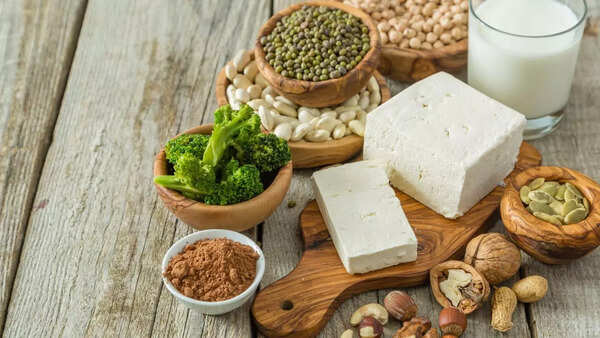Proteins are essential for tissue construction, repair, and maintenance. They also play a vital role in various cellular functions. While protein-rich foods and supplements are popular, experts suggest that most individuals already obtain sufficient protein through their regular diets.
Rather than relying on supplements, a balanced diet and regular exercise are more effective for achieving overall health. The heavy marketing of "high-protein" products can lead to unnecessary anxiety about protein consumption. According to experts, a varied diet typically provides enough daily calories and meets most protein needs.

Proteins are fundamental to every living cell, fulfilling structural and functional roles critical for life. They consist of amino acids, which are essential building blocks. While the body can produce some amino acids, essential amino acids must be acquired through diet. As a macronutrient, protein is one of the three key nutrients—along with carbohydrates and fats—necessary for overall health.
Protein is crucial for:
While a relatively high protein intake is generally safe, consuming extremely large amounts might be unnecessary and potentially harmful. Protein deficiency is rare, primarily affecting individuals with malnutrition or those in low-income areas with limited access to food.
According to the World Health Organization (WHO), healthy adults need about 0.8 grams of protein per kilogram of body weight daily. This translates to roughly 50 grams of protein per day for an average woman (65 kg / 143 lbs) and about 60 grams of protein per day for an average man (75 kg / 165 lbs). However, individual protein needs vary. Physically active people, especially strength athletes, require more protein.

Animal-based sources are considered complete proteins, as they provide all essential amino acids. They often include additional nutrients like iron and zinc. Examples include:

Plant-based sources may not always provide all essential amino acids in one food. However, consuming a variety of plant proteins throughout the day can meet your protein requirements. These include:
Vegans and vegetarians may have slightly lower protein intakes compared to non-vegetarians. However, they can still meet their protein requirements through careful food choices. The key is to include a variety of plant-based protein sources in the diet.

These include:
Vegetarians can also obtain protein from dairy products.
Here are some symptoms to watch out for:
Here's how to optimize your protein consumption:
For personalized advice, consult a registered dietitian or healthcare professional.
Newer articles
Older articles
 Esha Gupta Sets Record Straight: Actress Addresses Hardik Pandya Dating Rumors
Esha Gupta Sets Record Straight: Actress Addresses Hardik Pandya Dating Rumors
 Google Maps to Boost Navigation Accuracy with Fused Orientation Provider API
Google Maps to Boost Navigation Accuracy with Fused Orientation Provider API
 Global Vaccination Rates Plunge: Millions of Children Now Vulnerable to Preventable Diseases
Global Vaccination Rates Plunge: Millions of Children Now Vulnerable to Preventable Diseases
 Rishabh Pant: Greg Chappell Hails India Star as Cricket Revolutionary
Rishabh Pant: Greg Chappell Hails India Star as Cricket Revolutionary
 Skin Cancer Alert: How to Identify Suspicious Moles and Early Warning Signs
Skin Cancer Alert: How to Identify Suspicious Moles and Early Warning Signs
 Gavaskar Calls for Kuldeep Yadav's Inclusion in Second Test Amid Bumrah Fitness Concerns
Gavaskar Calls for Kuldeep Yadav's Inclusion in Second Test Amid Bumrah Fitness Concerns
 Is Daily Pooping a Must? Understanding Bowel Regularity and When to Worry
Is Daily Pooping a Must? Understanding Bowel Regularity and When to Worry
 Suryakumar Yadav's Sports Hernia: Understanding the Injury, Recovery, and Risk Factors for Athletes
Suryakumar Yadav's Sports Hernia: Understanding the Injury, Recovery, and Risk Factors for Athletes
 Vijay Sethupathi Apologizes Amid Controversy Over Son Surya's Debut Film 'Phoenix' and Alleged Video Removal Pressure
Vijay Sethupathi Apologizes Amid Controversy Over Son Surya's Debut Film 'Phoenix' and Alleged Video Removal Pressure
 Install Baccarat Hack Tool: The Secret to Winning
Install Baccarat Hack Tool: The Secret to Winning